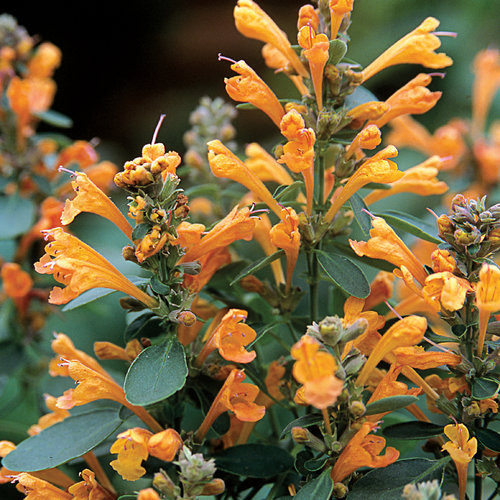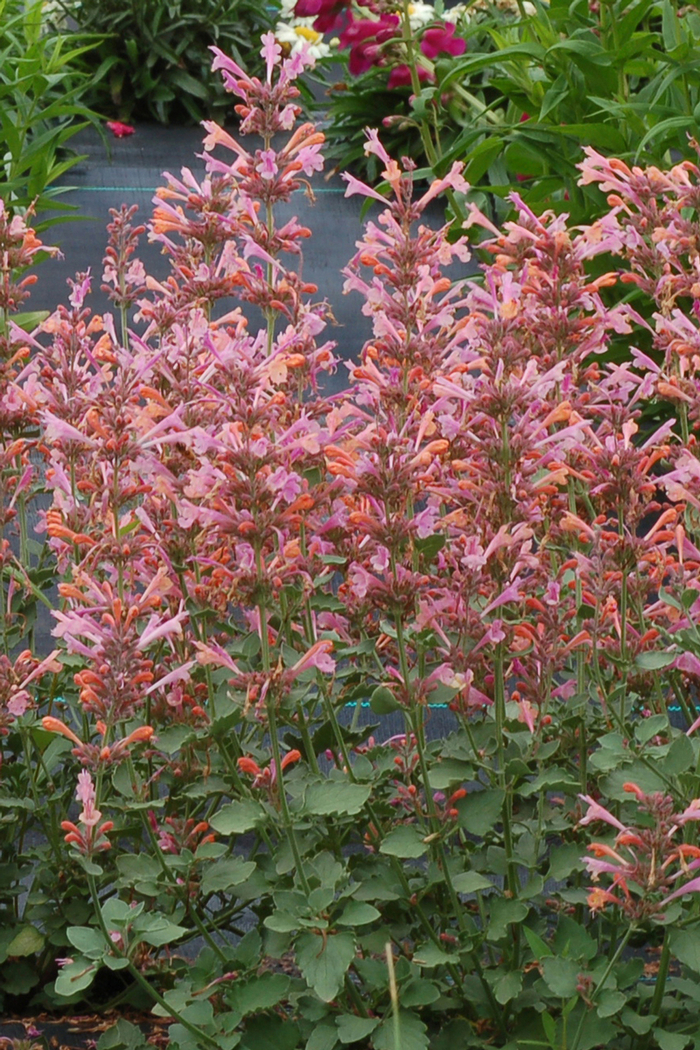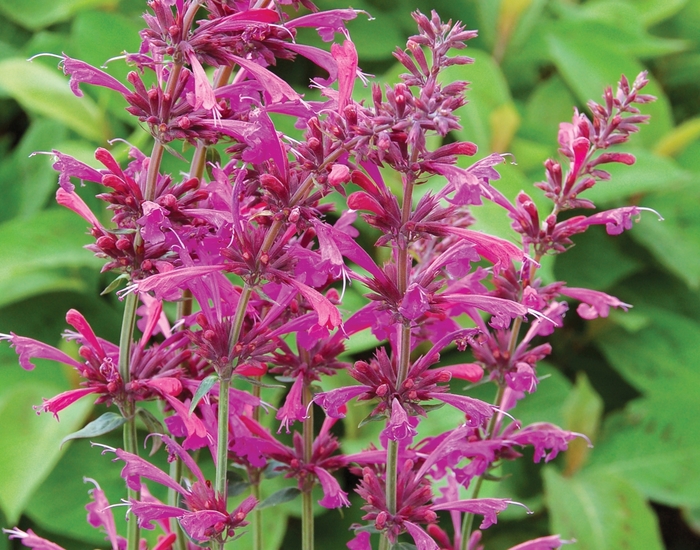Common Names: Anise Hyssop, Hummingbird Mint
$$$$$$$$$$$$$$$$$$$$$ Cautions $$$$$$$$$$$$$$$$$$$$$
|
CAUTION
|
|
Can be toxic to pets; particularly cats, dogs, and horses.
|
$$$$$$$$$$$$$$$$$$$$$ Part 1 - Overview $$$$$$$$$$$$$$$$$$$$$
Overview
| Plant Type | Perennial Herb |
| Hardiness Zone | |
$$$$$$$$$$$$$$$$$$$$$ Part 2 - What we have $$$$$$$$$$$$$$$$$$$$$
Cultivars
| Cultivar | Height | Spread | Blooms | Sun | Planted |
Arizona Sandstone
Agastache | 8-10" | 8-10" | Mid to late season | Full Sun | (none yet) |  |
Blue Fortune (Giant Hyssop)
Agastache | 24-36" | 18-24' | Mid to late season | Full Sun | Bee pollination garden |  |
Dwarf Hummingbird Mint Kudos 'Ambrosia'
Agastache | 17" | 16" | Mid to late season | Full Sun | House garden beds |  |
Hummingbird Mint 'Royal Raspberry'
Agastache | 28-32" | 28-32" | Midsummer to Fall | Full Sun to Partial Shade | House garden beds |  |
$$$$$$$$$$$$$$$$$$$$$ Part 3 - Ongoing Management $$$$$$$$$$$$$$$$$$$$$
Ongoing Management
Weed Control & Mulching
Insect & Disease Control
Fertilization
Compost around plant in Fall to feed.
Watering
Pruning / Cutting Back
Deadhead spent flowers to promote additional bloom. Cut down the stem to just above a pair of leaves which shows two new leaf growths.
Leave stems standing over the Winter.
Cut back hard in mid-Spring, leaving only 3-4" of height. Also remove old stems from previous year just above the new foliage.
Integrated Pest & Pollinator Mgmt Notes
Harvesting
Site Selection & Preparation
Propagation
This cultivar is sterile and does not self-seed.
Propagate by division in Spring or propagate by semi-ripe cuttings in late Summer for overwintering under cover.
Pollination Needs
$$$$$$$$$$$$$$$$$$$$$ Part 4 - More Information $$$$$$$$$$$$$$$$$$$$$
More Information
Web Sites
########## Standard Footer for all pages ##########




